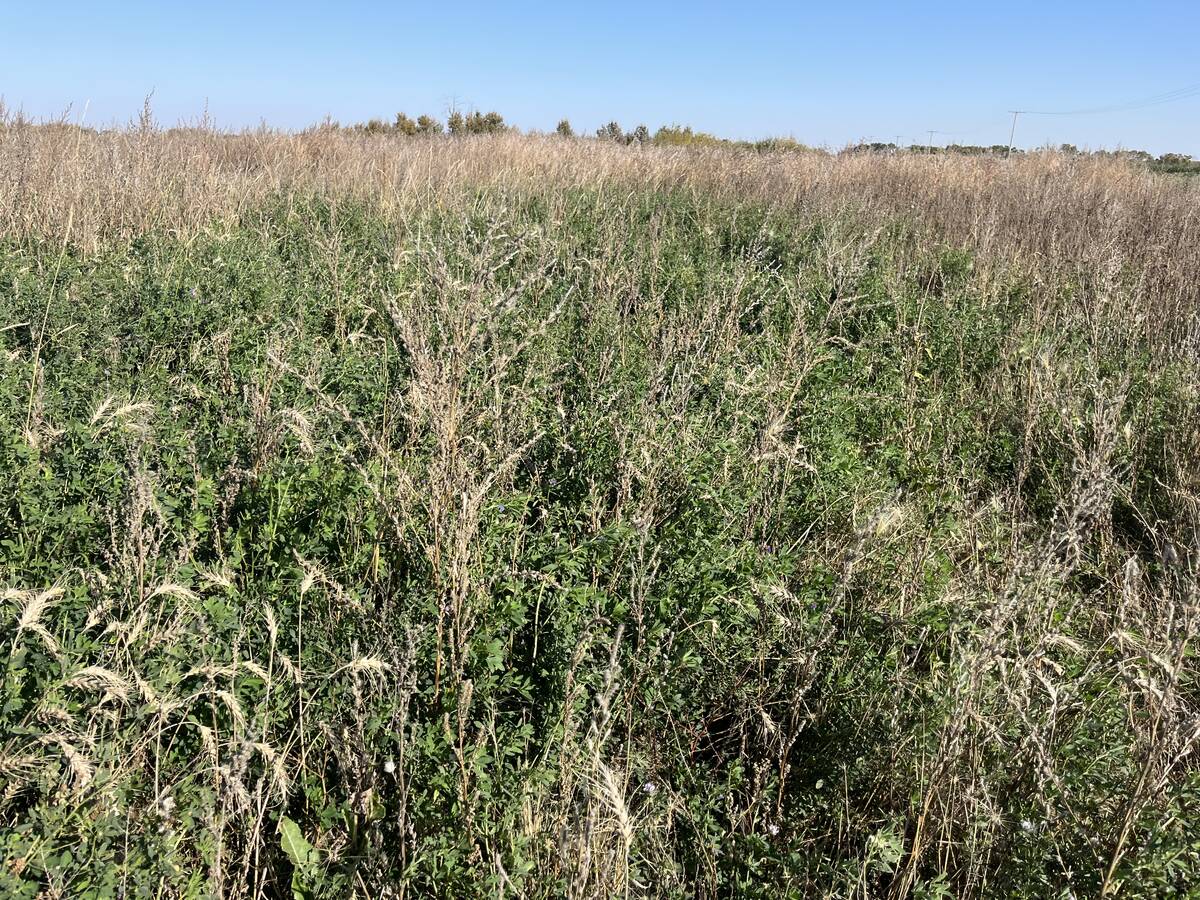CHARLOTTE, N.C. – Record exports of beef put the United States over the magic million-tonne mark for the first time last year, yet the country has embroiled itself in trade actions with its two best customers, Canada and Mexico.
“Economists are telling us we’re winning the export battles and yet we’re here attacking them saying they are flooding the market,” said an international committee member at the National Cattlemen’s Beef Association convention held in Charlotte, N.C.
“Attacking our best customers is hardly the way to win friends,” said Tom Moxley of Kansas.
Read Also

Dormant seeding forages frees up farmer time and gets ahead of weeds
Dormant seeding isn’t common practice and can appear daunting, but there are some techniques to give Manitoba farmers an edge
After lengthy debate the committee proposed a policy that opposes lawsuits, petitions or other legal proceedings not based on reliable trade data or sound science that jeopardize trade relations with countries like Canada or Mexico.
Bill Donald, a member of the Ranchers-Cattlemen Action Legal Foundation based in Montana, presented the stance of the grassroots group. He argued Canada is selling subsidized beef in America.
R-CALF formed last spring to initiate investigations into what effect imports have on the domestic cattle market and whether Canadian trade practices violate trade law.
“We’re not looking for someone to blame. We’re looking for a real solution to this problem,” Donald told the NCBA committee.
The group is convinced Canada sold cattle into their country at 18 to 22 percent below fair market value.
R-CALF has considerable support in the countryside where producers have been battered since 1995 with bad weather and low prices.
“Obviously, there’s a lot of people out there who have lost a lot of money and they have a belief that this is going to be a partial remedy,” said Donald. “It’s no panacea and it was never designed to be a silver bullet that’s going to cure all the ills of the cattle industry.”
While there was some moral support for
R-CALF’s position, a number of committee members argued against giving the group blanket approval.
The NCBA supported the group’s countervail case but maintained a neutral stance in the dumping case against Canada.
The cases are under investigation by the International Trade Commission in Washington. Legal fees on the Canadian side will likely reach $3 million.
Alan Smith of Texas said the money allocated for this case on both sides would be better spent on encouraging people to eat beef.
Other members pointed out American cattle producers are selling below the cost of production themselves because all feeders have lost money in the last year.
“Do you suppose the rest the world thinks we’re at a profitable level and we’re exporting it above cost of production? I hardly think so,” said Moxley.
Stanley Miller of Excel Beef said Mexico recently launched an anti-dumping investigation against the United States. Mexico’s preliminary investigation revealed dumping figures of up to 20 percent below the cost of production.
“We’re flooding that market with meat,” said Miller.
“Other people have learned to play the game using our rules to the detriment of the entire industry.”















